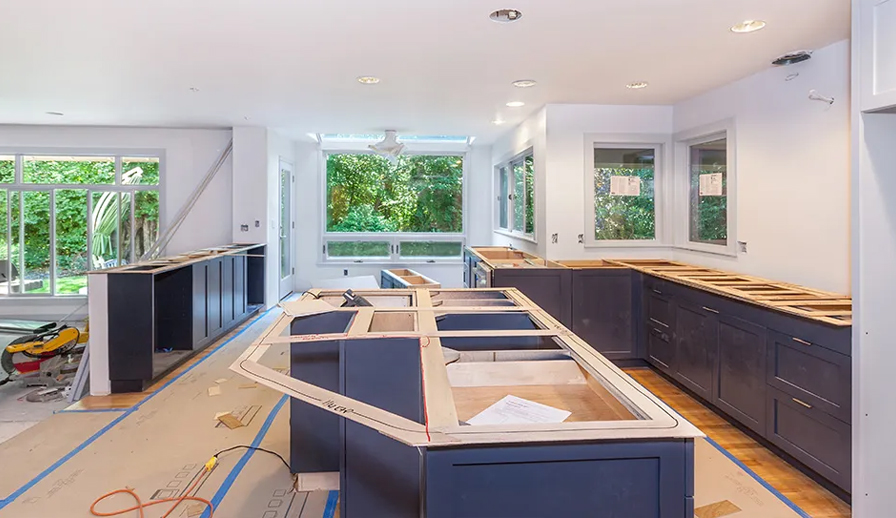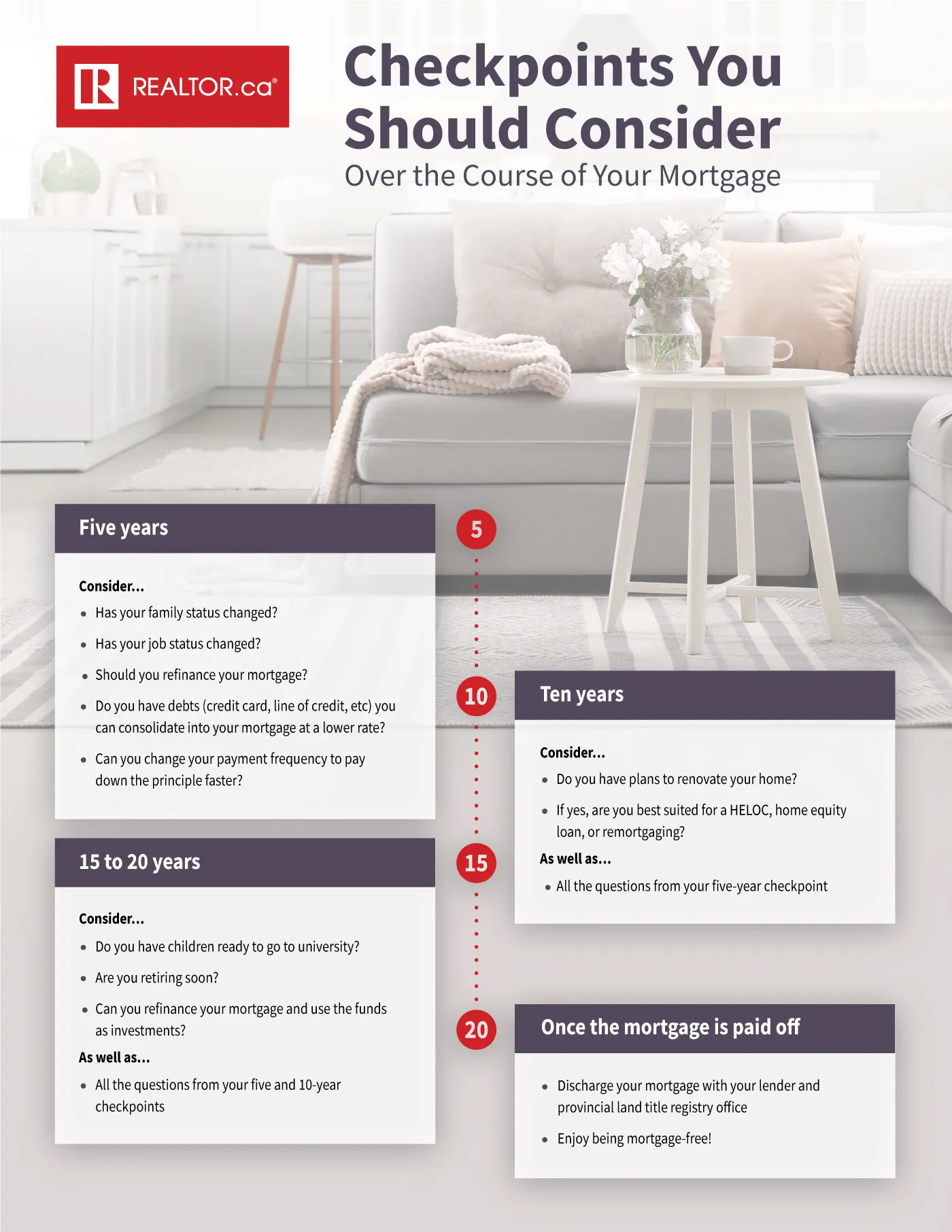Struggling to find content to share on your social media pages?
Our consumer lifestyle blog, REALTOR.ca Living Room, offers content including home improvement, market trends, DIY projects, neighbourhood guides and profiles on unique homes. REALTOR.ca Living Room publishes exciting new content four times a week (with unique French content for our Francophone fans).
While CREA Café is curated specifically to help your business grow and thrive, REALTOR.ca Living Room content is perfect to share with your clients.
Owned and operated by the Canadian Real Estate Association (CREA), REALTOR.ca is the No. 1 real estate platform in Canada (Comscore, 2020) with MLS® System listings from across the country.
Share this blog with your clients and follow REALTOR.ca on Twitter, Instagram and Pinterest.
You can read the original blog here.
When you buy a home, you’re probably not thinking too much about where life will take you five, 10, or 20 years from now. At the time, you’re more preoccupied with getting moved in and settling into your new space. But as your personal, professional, and financial situations change over time, you might need to re-evaluate your mortgage, too. That’s why it’s smart to consult a mortgage expert every few years to find out how you can optimize your payments as your lifestyle evolves. Here’s what to keep in mind throughout the amortization period of your mortgage.

Why are regular mortgage check-ins important?
Reviewing your mortgage frequently, especially if your financial needs, personal circumstances, or homeownership goals change, is a good idea, says Craig Howie, Durham Region Mortgage Agent for Dominion Lending Centres in Whitby, Ontario.
During these check-ins, your mortgage specialist will review your finances, income, employment status, debts, and personal life events, such as divorce or illness. They’ll also want to discuss your short- and long-term homeownership goals. This can help you decide whether to change your mortgage strategy or structure, such as paying a lump sum, negotiating interest rates, or increasing your payment frequency.

What happens when your mortgage is nearing renewal?
You can renew with your current lender without the need for a credit check or income verification, but that’s not always the best financial move, says Howie.
“Lenders often don’t send out their best rates in a renewal letter because they know people are busy or their credit situation could have changed,” he explains. “Somebody who lost their job or has extra expenses will value the idea of paying a slightly higher rate without another credit or income check.”
You could switch to another lender to get a better rate, but if you’ve made big purchases (car, vacation, taking out loans, etc.) your debt-to-income ratio increases, and that can affect your ability to get another mortgage.
“Once you have a mortgage, you’re only qualified for that mortgage; if you take that mortgage to another lender, they view it as a completely new one,” says Howie.

Five years into your mortgage: kids and jobs can factor in
Five years in, homeowners may have started a family, which impacts your finances, says Howie.
“You can often end up in higher debt due to maternity or paternity leave and daycare expenses, so we can look at a potential refinance and consolidating credit card or line of credit debt and adding it to the mortgage at a much lower rate,” he explains.
Amortizing those costs over a longer period lowers your monthly expenses and increases your cash flow, he adds. Or, if you’ve changed jobs and boosted your income, you may decide to change the frequency and size of your payments.
“When rates were 1.5%, nobody was really itching to pay their mortgage off quickly, but if interest rates stay where they are now—in the 5% range—it does make sense to pay it off faster by changing monthly payments to biweekly, taking advantage of lump sum payments, or doubling up your payments,” says Howie.
These are the things your mortgage expert can walk you through, identifying what makes the most sense for your personal situation. Mortgages shouldn’t be a “set it and forget it” situation. It’s important to keep on top of things to see where and how you can optimize your payments.

10 years into your mortgage: time for some TLC around the house
After 10 years of living in your home, you may be thinking about renovations or repairs. You may want to add the cost of a remodel or a new roof onto your mortgage, or switch the home equity you qualified for over to your mortgage. Reviewing your mortgage with an expert will help give you the bigger picture so you can see what your options are.

15 to 20 years into your mortgage: tapping into your equity
Fifteen to 20 years into your mortgage, you might have kids who are learning to drive, getting ready to go to university or may want to travel for a year—all things parents often help support financially. Or maybe you long to buy a vacation property or retirement.
“Although previous generations had a mentality of paying off debt as fast as possible, for the past 20 years, we’re seeing more people refinancing their mortgage to use funds as investments,” says Howie. He has many clients who leveraged their mortgages to buy rental properties or condos for university-aged children—who then charge rent to their roommates to help pay the mortgage.
“Some people are also thinking about retiring and wondering how to use the equity in their home to buy a cottage or help their children purchase a home.”
After spending the time to build equity in your home, you should be exploring all the options on how it can work best for you. You can also take this time to look at your long-term goals and consider what your priorities are as you near retirement.

Into the home stretch
A mortgage specialist will guide you through your final payment and advise you of any paperwork to be done along the way. Right up to the end, it’s important to maintain good credit so you can have an option to requalify if you need to, advises Howie. He adds that many mortgage brokers reach out to their clients annually to make sure things are going smoothly and any questions are answered.
“We make sure to address any questions or concerns ahead of time, so when the mortgage comes up for renewal, they don’t just sign the renewal; we always see what else is out there.”
Once you’ve paid your last mortgage payment, you still have a few things to do. This process, called discharging a mortgage, also involves your lender and provincial land title registry office. First, you’ll request confirmation from your lender that your mortgage has been paid in full. Then, your notary or lawyer sends these documents to the land registry office so changes can be made to your property’s title. There are fees involved, which vary depending on where you live. Find out what’s required in your province to be sure you’ve followed all the steps.

Your situation in year one of your mortgage is almost guaranteed to be different from your situation in year five, 10, or 20. Regularly looking at your mortgage options—with the help of a mortgage expert—can help save you money in the long run and even achieve some of your goals sooner. If you’re not sure where to start, your REALTOR® will be able to point you in the direction of other trusted professionals.
The information discussed in this article should not be taken as financial or legal advice. This article is for informational purposes only.





